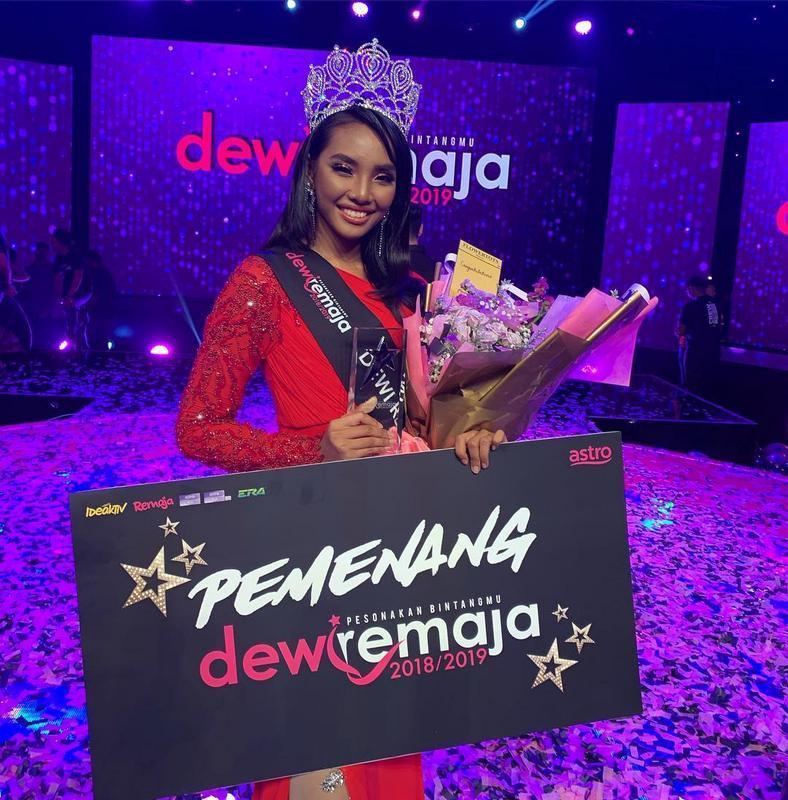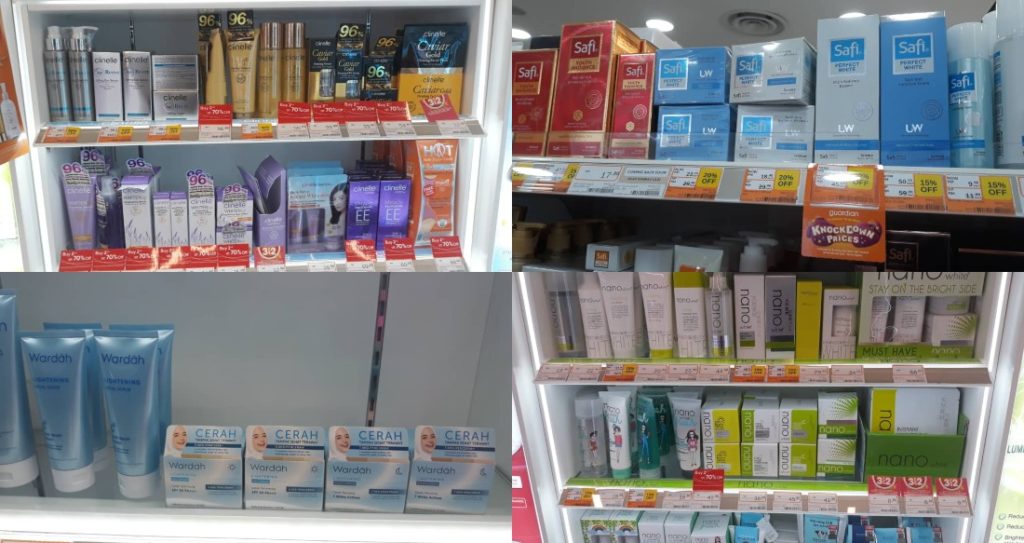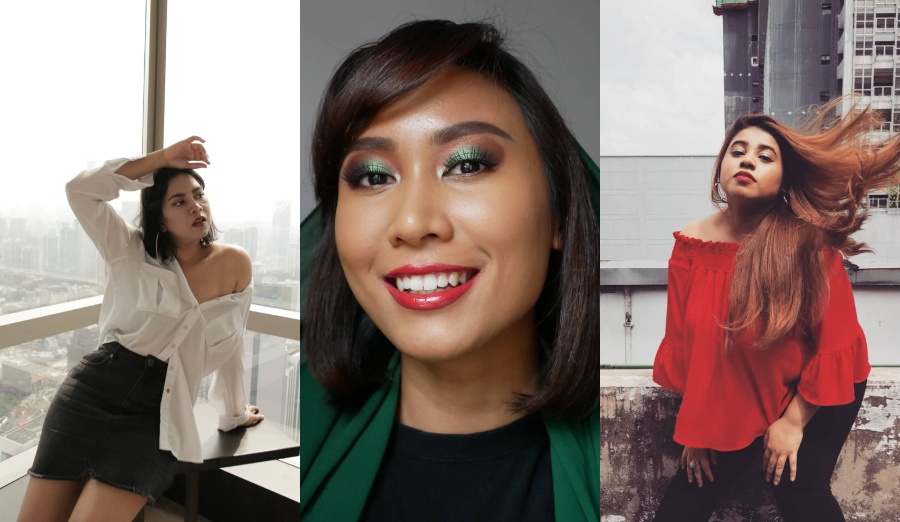Hundreds of women in Malaysia are joining the thousands around the world to take a stand against skin-whitening products.
Not only are they sending a strong message to the multi-billion dollar skincare industry that for decades has been whitewashed with models and products promoting fairer skin, these women are also calling them out for promoting biased beauty standards and colorism while selling products that could be harmful to health.
But with so many Malaysian women still obsessed with obtaining fairer skin, there is a long way to go before society can fully appreciate diversity in beauty.
Since 2016, the global #UnfairandLovely online movement continues to trend in Malaysia today, taking a jab at the name of the popular Fair and Lovely skin-whitening product line that has been around since 1975. The brand has since changed its name to Glow and Lovely after pressure from the public to stop promoting fair skin.
“Back then, it was common for young girls to want fair ‘white’ skin because you’d be considered as beautiful when you’re fair,” Malaysian news presenter Dharshaini Mary Grace told Coconuts KL in a recent interview. “It was the era of ‘fair & lovely.’ There were no ads that portrayed dark-skinned girls as beautiful.”
The 27-year-old is also a supporter of the #UnfairandLovely online movement that began on social media by Texas University students Pax Jones, Mirusha Yogarajah, and her sister, Yanusha.
More brown women in the media
In the past two years, more brown women are being represented in Malaysian media, including local coffee brand Wonda Coffee, whose rare television ad recently featured at least three talents with a dark complexion.
https://www.youtube.com/watch?v=8MrZRa1iXvc
Darker-skinned models are also appearing more frequently online with local cosmetics brands like Velvet Vanity, BeauTyra, Orkid Cosmetics as well as jewelry brand Wanderlust + Co featuring them in their social media campaigns.
Last year, beauty contestant Haneesya Hanee became the first woman with a dark complexion to win the popular Malaysian beauty pageant Dewi Remaja. That victory drew backlash from some members of the public over the color of her skin.
Unfortunately, that title was revoked after the then 20-year-old was spotted allegedly drinking alcohol at a party, which is illegal for Muslims in Islamic Malaysia.

Since January, nearly 3,000 Malaysians have been advocating the #UnfairandLovely movement in the Brown girls of Malaysia Facebook group, sharing photos of local brown women to “empower girls to stop bleaching and whitening their faces to please society,” the page said.
Fighting colorism
The brown beauty uprising in Malaysia comes on the back of whitening products becoming glaringly uncool around the world as more brands choose to promote diverse skin colors.
Others that have joined Fair and Lovely manufacturer Unilever in distancing itself from promoting fair skin include conglomerates Johnson & Johnson, L’Oreal, and Amazon.
The conscious rebranding by major companies is considered a “huge win” for Brown girls of Malaysia. But there is still a lot of work to be done, including issues of colorism stemming from the promotion of skin-whitening products.
“Renaming it is not going to solve the problem,” the group said online. “But it’s still a huge win and a major step in fighting colorism. Hopefully, this will make more people realize the problem with fairness creams and how it promotes internalized racism.”
Dharshaini, who is of Indian and Filipino descent, said she has been the subject of racist jokes due to her darker skin tone.

“I’ve got comments about not needing to use an umbrella in the sun since I was already dark. Some words people have used on me were, ‘dirty’ and ‘hitam macam keling (black like a keling),” she said. “Keling” is a derogatory term in Malaysia often used to insult people from the Indian community.
“It’s a bit sad because it took so long for brands to realize that skin-lightening is damaging, but I think it’s great they’re finally moving with the times,” she said, noting that brands could still sell skin-whitening products under a different name.
“At the end of the day, consumers have to be aware of what goes [onto] their skin,” she added.
Others feel that skin-whitening products set unrealistic beauty standards even though some of them are not even effective.
Video producer Pauline Andreasa, 28, gave whitening products a go in her early twenties only to find out that it had no effect on her skin.
“I fell for the ‘fair and lovely’ advertisements. I become super obsessed with how to lighten my skin up by trying up most of the whitening products and even home remedies. Sadly, nothing worked,” she said.
Makeup artist Sakinah Maharani also said that more people are now beginning to embrace their natural skin color and starting to see how problematic skin-whitening products can be.
“People are more critical towards whitening products today because they believe it’s unrealistic,” the 27-year-old said. “Perhaps the products do make you appear fairer but it doesn’t look natural at all.”
“Besides, more people are aware that some whitening products would use dangerous and abrasive ingredients, which can be bad for one’s skin,” she added. “Right now, in Southeast Asia and even the world, we have started to recognize that your skin color doesn’t define you, your actions do.”
Fair and Lovely products continue to sell in Malaysia but some are banned in Norway for allegedly containing toxic levels of mercury.
The company has rebuked this, stating that it uses melanin suppressor niacinamide in its products, which is allowed under Malaysia’s health regulations. It also claimed that the offending products in Norway “could be counterfeit.”
More harm than meets the eye
Skin-whitening products have had adverse effects on consumers’ health.
Nearly 200 beauty products have been banned by Malaysian authorities since 2008 for containing unhealthy levels of mercury and other toxic ingredients such as hydroquinone – a bleaching agent – and tretinoin. Malaysia only allows products to contain up to 1 parts per million, or ppm, of mercury – a popular ingredient that has skin-lightening properties. This is in line with the standard set by the World Health Organization.
Coconuts KL recently spoke to one victim who suffered from major skin irritation after using a mercury-tainted whitening product from the Philippines.

“I’ve used tons of whitening products before but only this one had a bad reaction. It gave me pretty bad rashes,” undergraduate Vanessa Mae Lim, 23, told Coconuts KL recently.
The Selangor native shared with Coconuts KL a photo showing red spots that had spread across her neck and chin after using the Goree–brand of skin-whitening products in 2018. She managed to purchase them from the Philippines.
“The brand is called Goree. I searched more about it and it turns out it’s covered on the news in the Philippines that they had mercury in their ingredients’ list, so many people experienced sort of the same thing or worse,” she said. Fortunately, Lim treated it with a topical steroid cream and the rash “went away after a couple of weeks.”
The Philippines’ Food and Drug Administration previously issued warnings about the Filipino brand and even found the “Whitening Beauty Anti-ageing Spots Pimples Removing Cream” to contain mercury 100,000 times more than what was permitted.
The effects of mercury are not only skin deep. According to Health Director-General Noor Hisham Abdullah in June, mercury could also affect internal organs such as the kidney.
“Mercury is forbidden in cosmetics because it can be harmful to health. It can be absorbed into the body and cause damage to the kidneys and nervous system,” he said when addressing the ban of three beauty products containing mercury.
‘Confident when I have fair skin’
Nevertheless, cutting back on skin-whitening products in the market remains an uphill battle in Malaysia.
One bad experience did not deter Kuala Lumpur native Farah Nurdiana from continuing to incorporate skin-whitening products into her beauty routine. The 24-year-old has been using such products since she was in primary school and once had her face swollen after using a particular cream.
“I bought a ‘day and night cream’ from a local brand, that had mercury in it, and my face became so swollen,” she said. For now, she sticks to drugstore brands like Hada Labo, Nano White, and Dr Morita, and advises those who want to use whitening products to do their research before making purchases.

“Please don’t simply buy skincare. Do your research on what ingredients are in the product, and get to know your skin type to make sure it is compatible with the product,” she said.
While Farah admits that such products and the ads promoting them could alienate those who are not born with fairer skin, she still supports skin-whitening products as they help her boost her self-confidence.
“Beauty is more than just one’s physical appearance. I think ads like ‘Fair and Lovely’ have unwittingly sent us a message that being fair is the norm,” the content creator said. “This can make people who are not naturally fair feel alienated and compelled to buy whitening products.”
She later added: “I find that I am more confident when I have fair skin. My skin doesn’t appear dull and I feel confident enough to speak to people.”
Other stories to check out:
Gamer ‘Tashbunny’ opens up on ‘toxic’ misogyny in Malaysia’s gaming industry
Man opens up on struggle with religion, homosexuality, and coming out in Mecca





Reader Interactions